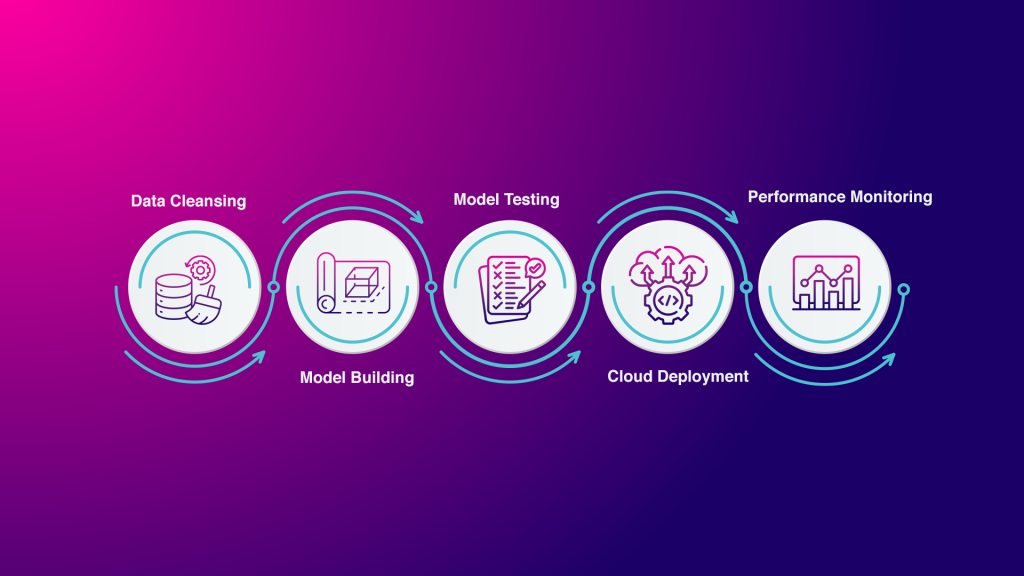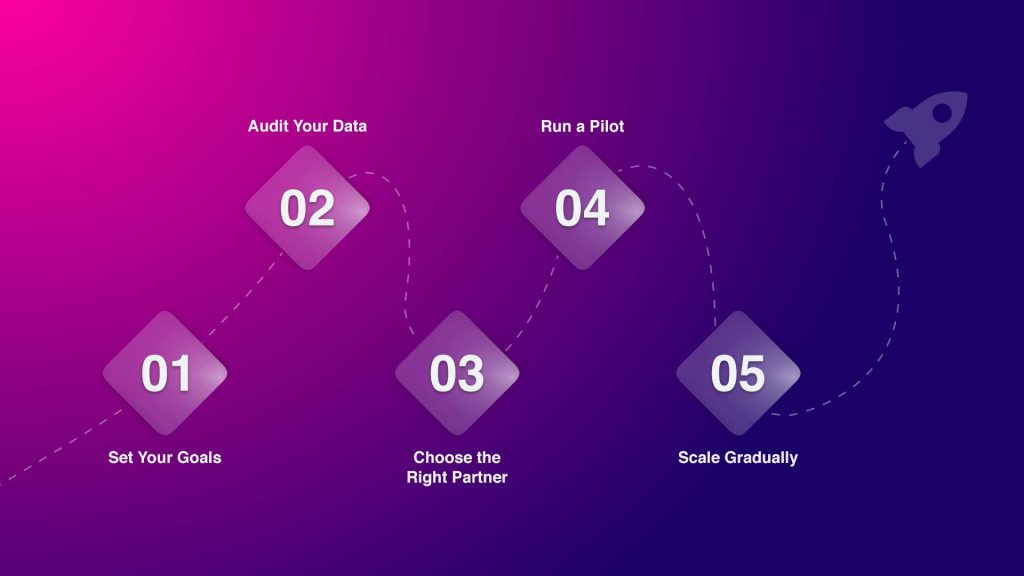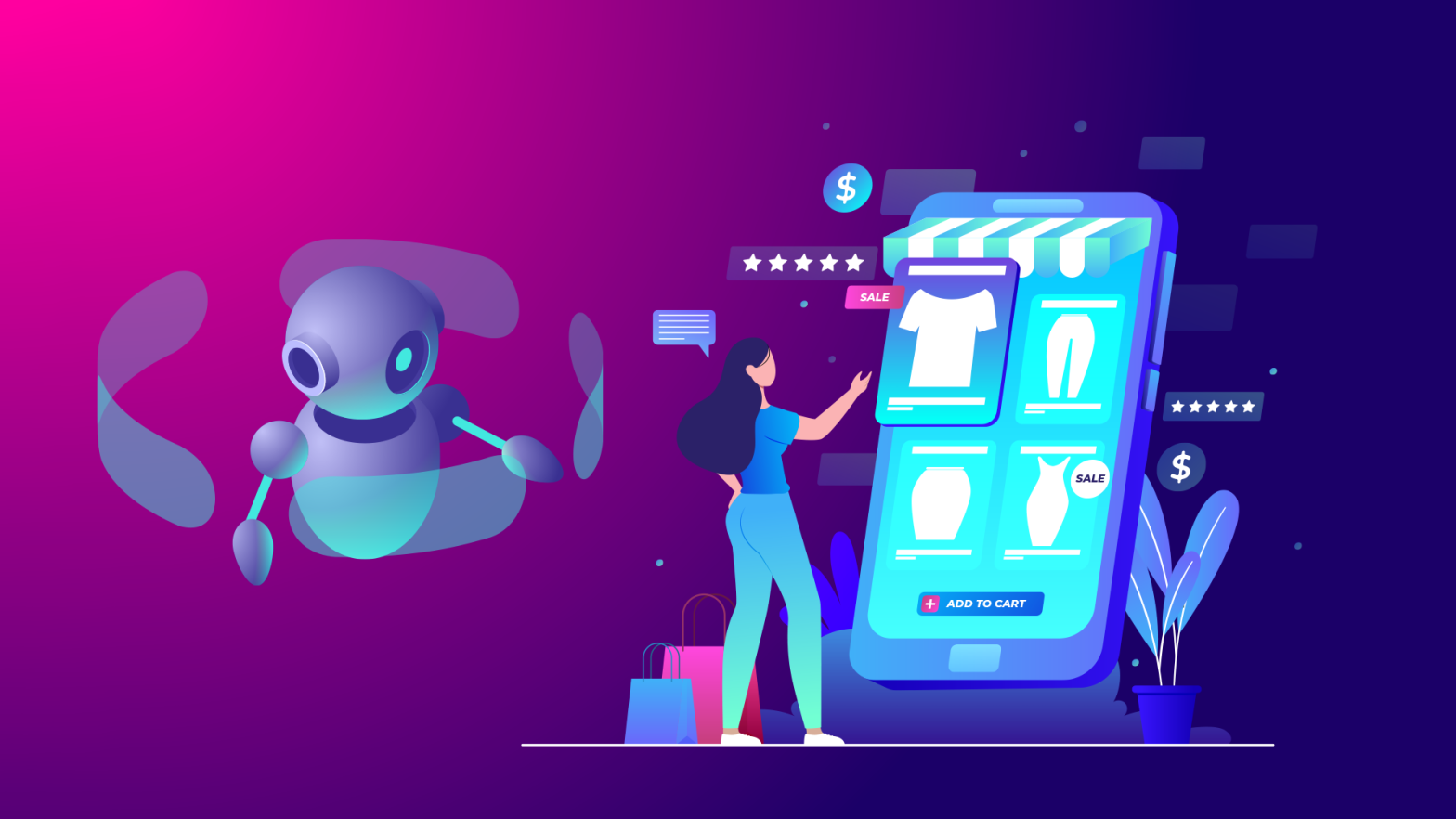Data Analytics and Artificial Intelligence have emerged as models with unprecedented power. Some call it magic. And why not! Open an app and you are most likely to stumble on the item you need. These personalized shopping experiences have upgraded business models of many retailers.
In the current scenario, all those retailers who develop AI software benefit significantly but building these predictive systems is not a piece of cake. There is a lot more that goes behind the scenes- from thoughtful designs to strategic planning.
We are venturing into a brief trip that shows how retailers succeed and why partnering with ai and ml development services.
Why Retailers Are Rushing to Develop AI Software?
The retail setup is undergoing an immense change thanks to AI-powered predictive analysis.
- The global AI is expected to reach a whooping figure of $15.3 billion by 2025.
- Over 80 % of retail executives expect AI-driven personalization and automation to spike by 2025.
- During last year’s Black Friday, retailers using generative AI tools achieved a 15 % higher conversion rate, while 60 % of buyers say AI improved forecasting and inventory reliability
These aren’t just figures. It’s a testimony that shows power and urgency for retailers to develop AI software that not only predicts but also acts according to shifting consumer behavior.
Using Custom AI Development to Align with Business Needs

Retailers have their own set of challenges. Seasonality, diverse customer segments, and multichannel operations- there’s so much to tackle which is why custom AI development is more effective than using off-the-shelf models.
Generic tools aren’t the solution but custom-built AI solutions are:
- Tailored to your retail data — such as local buying patterns, loyalty trends, and regional inventory shifts.
- Built for your goals — whether that’s minimizing returns or increasing cart value.
- Flexible and future-proof — easily updated with new SKUs, campaigns, or customer segments.
You must partner with experts to develop AI software in order to achieve better performance and long-term scalability.
How AI and ML Development Services Enable Smarter Predictions?
Being a machine learning expert won’t guarantee success but working with the right partner would certainly do so. AI and ML development services come handy as thry offer full-cycle support in form of:
- Data infrastructure — from cleansing and labeling to integration with existing CRMs and ERPs.
- Model building — using time-series forecasting, clustering, and neural networks.
- Testing and monitoring — ensuring models stay accurate as trends evolve.
- Deployment and scaling — whether on cloud, edge, or across store networks.
The smartest retailers use these services to develop AI software faster, better, and with less risk.
Top Use Cases of Predictive AI in Retail
If you’re wondering what AI can actually predict—here are some of the most impactful retail applications:
1. Purchase Probability
AI models can score each customer based on likelihood to buy, enabling more effective email, ad, and SMS targeting.
2. Dynamic Pricing
AI is extremely helpful for retailers when it comes to adjusting pricing in real time based on demand, competitor trends and other factors.
3. Product Recommendations
Machine learning algorithms can suggest products based on past behavior, increasing average order value.
4. Demand Forecasting
From holidays to weather changes, AI predicts shifts in buying patterns to reduce overstock and stockouts.
Retailers that develop AI software to cover these use cases see measurable ROI—fewer returns, higher satisfaction, and better margins.
How to Develop AI Software for Predictive Retail- Brief Overview

Here’s a simplified roadmap for you to build a reliable AI prediction engine.
- Set your goals – Do you want to boost sales, reduce returns, or optimize inventory?
- Audit the entire data you have – Ensure you have clean, labeled, and privacy-compliant data.
- Choose the right partner – Seek AI and ML development services with retail expertise.
- Start small – Run a pilot for a single store, campaign, or segment.
- Scale gradually – Once tested, roll out to more channels or use cases.
This is a well-structured approach that successfully ensures you develop AI software that works and evolves with your business without any obstruction.
Pitfalls to Avoid When Building AI for Retail
| Mistake | Consequence |
| Using poor-quality data | Leads to inaccurate predictions |
| Overbuilding before testing | Wastes time and budget |
| Ignoring model monitoring | AI becomes outdated and irrelevant |
| Over-relying on generic tools | Misses out on custom insights |
Final Thoughts: Predict the Future, Don’t Chase It
Retail is more than what you thought of it some years ago. Businesses that choose the right tools and strategies can develop AI software that predicts customer behavior, personalizes offers, and anticipates demand.
But don’t go it alone. Pattern with OCloud Solutions– the leading custom AI development company that offers tailored solutions for your brand. Trust us with proven AI and ML development services to build, launch, and maintain high-performing systems.
